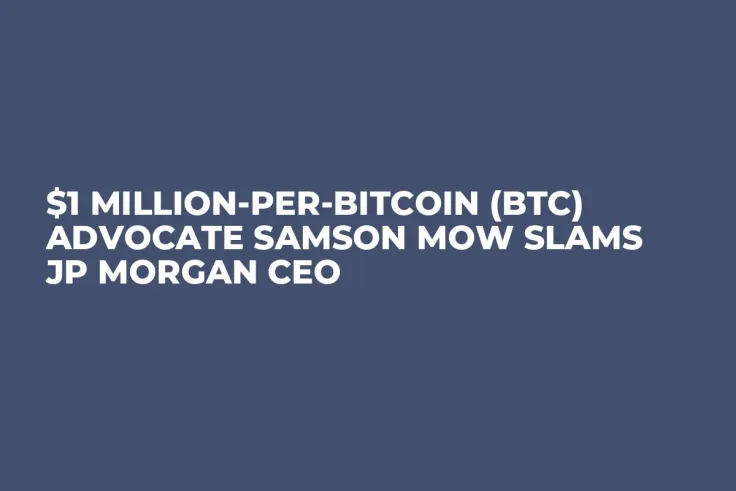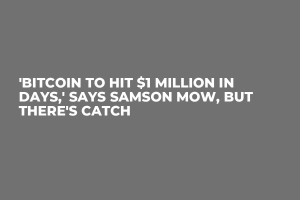
In a recent interview, JPMorgan CEO Jamie Dimon cautioned against involvement with Bitcoin, labeling the largest cryptocurrency as a tool primarily used for fraud and money laundering.
Dimon's remarks sparked intense debate within both the traditional finance and crypto communities. Renowned financier James Lavish defended JP Morgan's CEO, emphasizing his strategic intelligence, suggesting that Dimon is fully aware of how disruptive Bitcoin can be to traditional banking.
However, Samson Mow, a vocal advocate for Bitcoin, took a contrasting view, dismissing Dimon's position as uninformed. Mow, known for his bold "$1 million per BTC" stance, criticized the banker, asserting that the banking industry should embrace Bitcoin rather than resisting it.
"Bitcoin is money now"
According to him, banks could thrive by offering Bitcoin-related services, and he challenged Dimon to transition JPMorgan into a "Bitcoin bank" to stay relevant in a changing financial landscape.
Mow argued that Bitcoin is not inherently disruptive; rather, it is the reluctance of banks to adapt to a changing monetary landscape that poses a threat to their existence. He highlighted the transformative potential of BTC and suggested that by integrating crypto services, banks can secure their position in the evolving financial ecosystem.
Mow's perspective challenges the traditional notion of banking, emphasizing that denying Bitcoin's role as money is a failure to acknowledge the changing nature of currency.
As the debate continues, it underscores the broader conversation about the role of cryptocurrencies in shaping the future of finance. With Mow's bold advocacy for Bitcoin and his call for banks to adapt to the evolving financial landscape, the clash of perspectives raises questions about the future of traditional banking in the face of innovation.


 Vladislav Sopov
Vladislav Sopov Dan Burgin
Dan Burgin